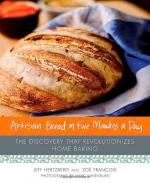|
This section contains 422 words (approx. 2 pages at 300 words per page) |

|
Norris's novel, now nearly eighty-yearsold, presents social concerns involving the inequitable treatment of women in the workplace that still trouble us today. Ultimately, the book's message appears somewhat ambiguous. By today's standards Norris is certainly not a feminist; nor, however, is he unsympathetic to the struggles women endure in a world dominated by men. Jeannette is a likeable character; readers empathize with her desire to work and become selfsufficient. Furthermore, one should feel a pang in the final pages when Jeannette realizes that her life of breadwinning has left her alone and terribly lonely. Norris carefully constructs the plot of Bread to make Jeannette more a victim of social forces and mores than any flaw in her own character. This technique, characteristic of naturalists such as the Americans Stephen Crane and Frank Norris as well as the French author Emile Zola, ties Bread to a tradition...
|
This section contains 422 words (approx. 2 pages at 300 words per page) |

|




